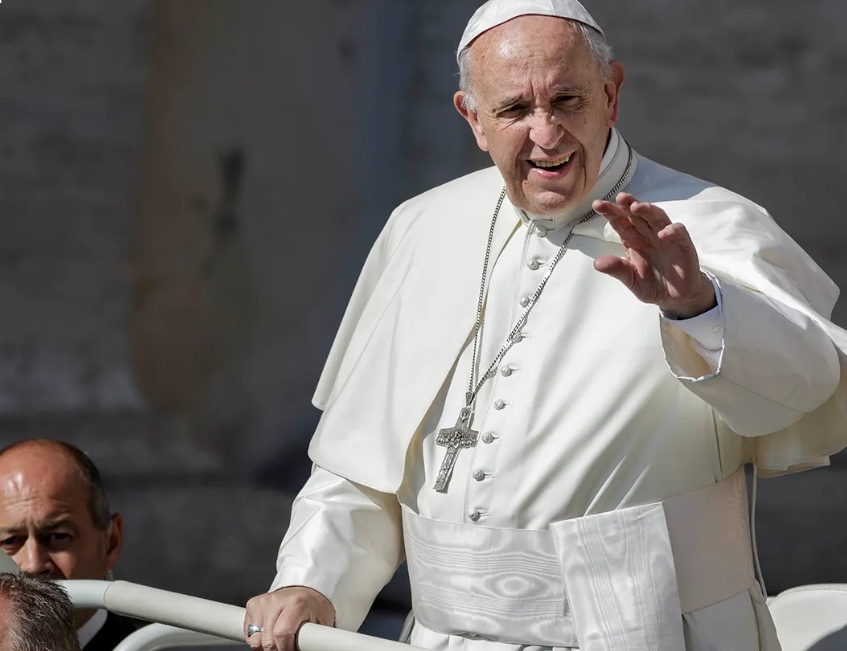This article explores the papacy of Pope Francis (Jorge Mario Bergoglio), focusing on his identity as the first Jesuit and Latin American pope and examining the transformative dimensions of his leadership within the Catholic Church and beyond. By analyzing his theological orientation, institutional reforms, and moral engagement with issues such as economic justice, ecological responsibility, and interfaith dialogue, the article highlights how Francis has redefined the scope and tone of the modern papacy. It also considers the challenges and controversies he has faced, particularly regarding internal Church reform and the handling of clerical abuse. Through a critical examination of his major encyclicals and public initiatives, this study positions Francis as a pivotal figure in the ongoing evolution of global religious leadership.
Introduction
The papacy of Pope Francis, inaugurated in March 2013 following the resignation of Pope Benedict XVI, has been characterized by a commitment to humility, inclusivity, and reform. As the first pope from the Americas, the Southern Hemisphere, and the Jesuit order, Pope Francis represents a historical turning point for the Roman Catholic Church.
Early Life and Ecclesiastical Career
Jorge Mario Bergoglio was born on December 17, 1936, in Buenos Aires, Argentina, to Italian immigrant parents. He joined the Society of Jesus (Jesuits) in 1958 and was ordained a priest in 1969. After serving as a professor of theology and rector of the Philosophical and Theological Faculty of San Miguel, he became Archbishop of Buenos Aires in 1998 and was elevated to cardinal in 2001 by Pope John Paul II.
Election to the Papacy
Bergoglio was elected pope on March 13, 2013, following the unprecedented resignation of Pope Benedict XVI. Taking the name Francis in honor of St. Francis of Assisi, he signaled a papal mission focused on peace, humility, and concern for the marginalized.
Key Themes and Actions of His Papacy
Emphasis on Mercy and Humility
From the outset, Pope Francis emphasized a “Church for the poor,” shunning many traditional papal luxuries and choosing to live in the Vatican guesthouse rather than the Apostolic Palace. His message of mercy culminated in the Jubilee Year of Mercy (2015–2016), encouraging compassion and forgiveness.
Social and Economic Justice
Francis has been a vocal critic of unfettered capitalism, global inequality, and consumerism. His apostolic exhortation Evangelii Gaudium (2013) and encyclical Fratelli Tutti (2020) challenge Catholics and world leaders to prioritize human dignity and solidarity over market interests.
Environmental Advocacy
In his 2015 encyclical Laudato Si’, Pope Francis addressed climate change and ecological degradation as moral issues, calling for a unified global response. This document significantly influenced international environmental discourse, including the UN’s COP conferences.
Synodality and Church Reform
Francis has emphasized synodality—governance through collective discernment—seeking to decentralize Church authority. He has initiated reforms in the Roman Curia (e.g., Praedicate Evangelium, 2022) and allowed for broader consultation within the Church, including on contentious topics such as the role of women and LGBTQ+ inclusion.
Interfaith and Intercultural Dialogue
Francis has prioritized relationships with other religions, particularly Islam and Judaism. Notable moments include his 2019 joint declaration with the Grand Imam of Al-Azhar in Abu Dhabi and his 2021 visit to Iraq, promoting coexistence in a region marred by sectarian violence.
Handling of Abuse Scandals
Pope Francis has faced criticism for his handling of sexual abuse cases, though he has implemented several measures to improve accountability and transparency, including the creation of the Pontifical Commission for the Protection of Minors and the motu proprio Vos Estis Lux Mundi (2019).
Legacy and Ongoing Influence
Pope Francis’s pontificate remains active and influential. His efforts to reorient the Church towards compassion, service, and global justice resonate beyond Catholicism. However, he faces opposition from within ecclesiastical ranks and conservative circles resistant to change. His legacy will likely be judged by his success in promoting structural reform while maintaining theological continuity.
Conclusion
Pope Francis has redefined the role of the modern papacy through his global engagement, pastoral tone, and focus on inclusivity and justice. His leadership challenges the Church to engage with the complexities of the contemporary world while remaining rooted in the Gospel message.
References
Francis. (2015). Laudato Si’: On care for our common home. Vatican Publishing House.
Francis. (2020). Fratelli Tutti: On fraternity and social friendship. Vatican Publishing House.
Allen, J. L. (2015). The Francis miracle: Inside the transformation of the pope and the Church. Time Books.
Ivereigh, A. (2014). The great reformer: Francis and the making of a radical pope. Henry Holt and Company.
Reese, T. (1998). Inside the Vatican: The politics and organization of the Catholic Church. Harvard University Press.


hi!,I love your writing so much! percentage we communicate extra approximately your post on AOL? I require an expert on this space to unravel my problem. May be that is you! Taking a look ahead to look you.